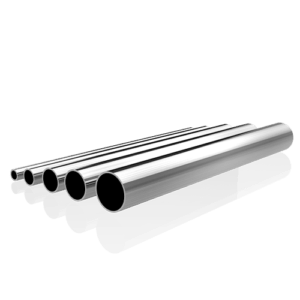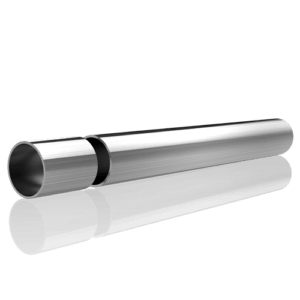Welcome to My Blog!
Before we dive into the content, I’d love for you to join me on my social media platforms where I share more insights, engage with the community, and post updates. Here’s how you can connect with me:
Facebook:https://www.facebook.com/profile.php?id=100085401406977
LinkedIn:https://www.linkedin.com/showcase/102680001/admin/dashboard/
Now, let’s get started on our journey together. I hope you find the content here insightful, engaging, and valuable.
Introduction

In the realm of industrial manufacturing, the choice of materials is pivotal to achieving durability, performance, and cost-efficiency. Among the various materials available, Qilu 420 stainless steel has gained prominence due to its remarkable properties and versatility. This blog delves into the benefits of Qilu 420 stainless steel, exploring its features, applications, and the reasons it is a preferred choice in various industrial settings.
What is Qilu 420 Stainless Steel?
Understanding Qilu 420 Stainless Steel
Qilu 420 stainless steel is a type of martensitic stainless steel known for its high hardness and excellent corrosion resistance. It is produced by Qilu Steel, a leading manufacturer renowned for its high-quality stainless steel products. The alloy primarily consists of chromium and carbon, which contribute to its unique properties.
Key Composition and Properties
Qilu 420 stainless steel typically contains:
- Chromium (12-14%): Provides corrosion resistance and strength.
- Carbon (0.15-0.40%): Enhances hardness and wear resistance.
- Manganese, Silicon, and other trace elements: Contribute to the overall performance of the steel.
These elements combine to give 420 stainless steel its distinctive characteristics, making it suitable for demanding industrial applications.
Benefits of Qilu 420 Stainless Steel
High Hardness and Wear Resistance
One of the standout features of Qilu 420 stainless steel is its high hardness, which enhances its wear resistance. This makes it ideal for applications where components are subjected to significant friction and abrasion. The steel maintains its sharpness and shape even under harsh conditions, extending the service life of tools and parts.
Excellent Corrosion Resistance
Qilu 420 stainless steel offers exceptional resistance to corrosion, particularly in environments exposed to moisture and various chemicals. The high chromium content provides a protective layer that prevents rust and deterioration, ensuring longevity and reliability in corrosive conditions.
Superior Strength and Durability
The combination of chromium and carbon in 420 stainless steel results in a material with superior strength and durability. It can withstand high stresses and loads, making it suitable for heavy-duty applications in industrial manufacturing. Its robust nature ensures that components made from this steel can handle demanding tasks without failure.
Heat Treatment Capabilities
Qilu 420 stainless steel can be heat-treated to achieve a range of hardness levels and mechanical properties. This versatility allows for customization according to specific requirements. Heat treatment processes such as quenching and tempering enhance the steel’s performance, making it adaptable to various industrial needs.
Applications of Qilu 420 Stainless Steel
Tool Manufacturing
Due to its hardness and wear resistance, 420 stainless steel is commonly used in the manufacturing of cutting tools, dies, and blades. The steel’s ability to retain a sharp edge under pressure makes it ideal for tools that require precision and durability.
Automotive Industry
In the automotive industry, 420 stainless steel is used for components that need to withstand high stress and exposure to harsh environments. Applications include engine parts, exhaust systems, and structural components that benefit from the steel’s strength and corrosion resistance.
Aerospace and Defense
Qilu 420 stainless steel is employed in aerospace and defense sectors for parts that require high strength and resistance to extreme conditions. Its durability and reliability are crucial for components in aircraft, spacecraft, and military equipment.
Medical Devices
In the medical field, 420 stainless steel is used for surgical instruments and medical devices due to its biocompatibility and resistance to corrosion. The steel’s hardness and durability ensure that medical tools remain effective and sterile over extended periods.
Key Properties of Qilu 420 Stainless Steel
| Property | Description | Importance |
|---|---|---|
| Hardness (HRC) | 48-52 Rockwell C | High resistance to wear and abrasion |
| Corrosion Resistance | Good resistance to corrosion in various environments | Extends the service life of components |
| Yield Strength (MPa) | 500-600 | High strength for heavy-duty applications |
| Tensile Strength (MPa) | 750-850 | Superior strength for demanding tasks |
| Heat Treatment | Can be heat-treated to enhance properties | Versatile performance characteristics |
Comparing Qilu 420 Stainless Steel to Other Grades
Comparison with 304 Stainless Steel
Compared to 304 stainless steel, 420 stainless steel offers higher hardness and wear resistance but has slightly lower corrosion resistance. While 304 is known for its superior corrosion resistance, Qilu 420 is preferable in applications requiring high hardness and strength.
Comparison with 316 Stainless Steel
Qilu 420 stainless steel differs from 316 stainless steel primarily in hardness and corrosion resistance. While 316 provides better corrosion resistance, Qilu 420’s higher hardness makes it more suitable for applications where wear and tear are significant factors.
Challenges and Considerations

Cost Factors
Qilu 420 stainless steel may be more expensive than some other stainless steel grades due to its high hardness and specialized properties. However, its durability and extended service life often justify the higher initial cost.
Machinability
The high hardness of Qilu 420 stainless steel can make it more challenging to machine compared to softer stainless steels. Proper tooling and machining techniques are required to achieve desired shapes and finishes.
Heat Treatment Requirements
To achieve optimal hardness and performance, 420 stainless steel often requires specific heat treatment processes. Ensuring proper heat treatment is crucial for achieving the desired properties and avoiding potential issues during manufacturing.
Conclusion
Qilu 420 stainless steel is a high-performance material with significant benefits for industrial manufacturing. Its exceptional hardness, wear resistance, and corrosion resistance make it a valuable choice for a variety of applications, from tool manufacturing to aerospace and medical devices. While it may come with higher costs and specific machining requirements, the advantages of using Qilu 420 stainless steel often outweigh these challenges.
By understanding the properties and applications of 420 stainless steel, manufacturers can make informed decisions about material selection, enhancing product quality and performance across various industries.
FAQ
What is Qilu 420 stainless steel?
Qilu 420 stainless steel is a martensitic stainless steel known for its high hardness, excellent wear resistance, and good corrosion resistance. It is used in applications requiring strength and durability.
What are the main benefits of 420 stainless steel?
The main benefits include high hardness, excellent wear resistance, superior strength and durability, and good corrosion resistance. It is suitable for demanding applications in various industries.
What industries commonly use Qilu 420 stainless steel?
Qilu 420 stainless steel is commonly used in tool manufacturing, the automotive industry, aerospace and defense, and medical devices due to its hardness and corrosion resistance.
How does Qilu 420 stainless steel compare to other stainless steel grades?
Compared to grades like 304 and 316 stainless steel, Qilu 420 offers higher hardness and wear resistance but may have slightly lower corrosion resistance. It is chosen for applications where hardness and durability are critical.
What are the challenges associated with Qilu 420 stainless steel?
Challenges include higher cost compared to some other grades, machinability issues due to its hardness, and specific heat treatment requirements to achieve optimal properties.
